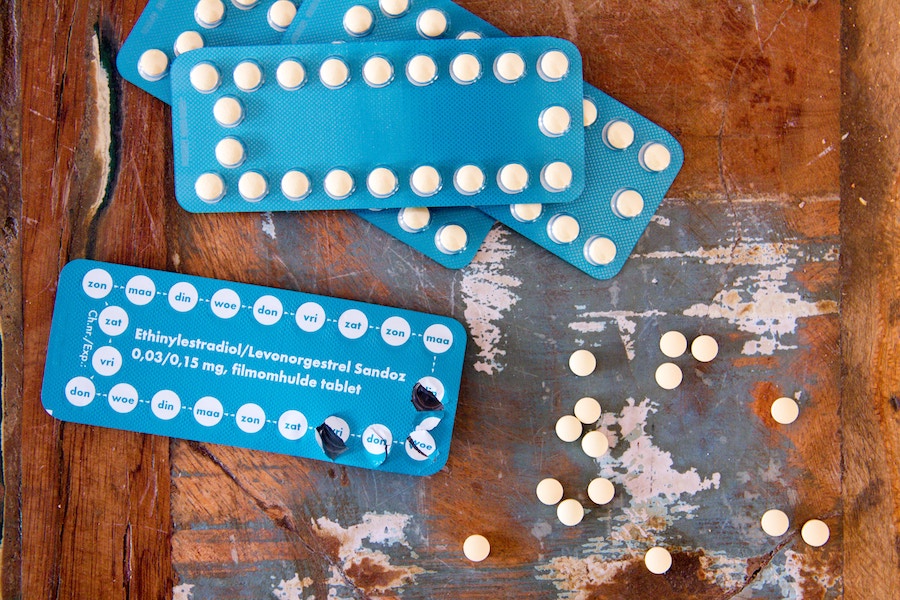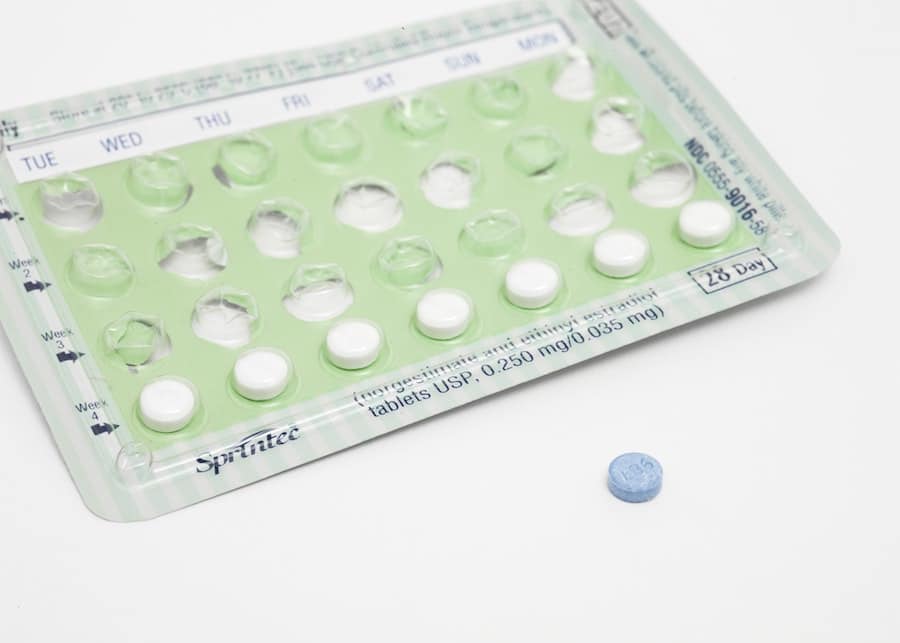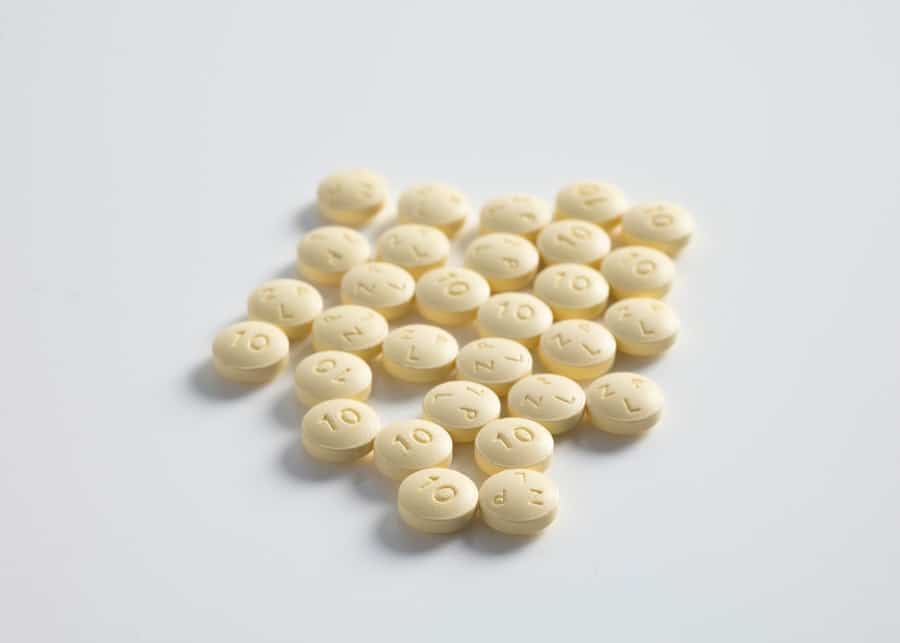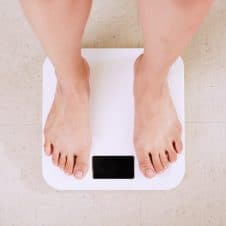We look into the research on the risks and effects of birth control infertility and if taking oral contraceptives causes permanent infertility.

For those following my infertility journey, you know that I am one of the 1 in 8 who struggle trying to conceive. I was originally diagnosed with polycystic ovary syndrome (PCOS) by a reproductive endocrinologist (who later would be the doctor to retrieve eggs, fertilize eggs, and implant eggs via IVF in what would soon become Baby E), and it was explained that it was this PCOS that caused my apparent infertility.
However, upon reflection and some digging, I started to question whether I had been misdiagnosed. I mean, I don’t really meet any of the criteria for PCOS other than the fact that I wasn’t ovulating, and I had slightly polycystic ovaries. Yes, I met the diagnostic criteria, but I didn’t exhibit any of the other symptoms typical in women with PCOS. I wasn’t gaining weight, my blood sugars and testosterone levels were normal, I wasn’t growing facial hair etc. My family doctor said he was SURE I didn’t have PCOS and that what I was actually experiencing with my infertility issues was something he called Post-Pill Amenorrhea. This is a phenomenon where women who have been on the birth control pill for a long time suddenly cannot get pregnant or ovulate even after they come off. It made somewhat sense considering I had been using hormones to artificially simulate something my body should be doing naturally for 14 whole years and all of a sudden I was hoping it would just figure it out. I started asking more and more questions.
I began to quiz my fellow IVF mamas and infertility warriors, and many of them told me that they too had been on the pill for many years, and when they came off, they just didn’t get a period.
So why do some women get pregnant as soon as they come off the birth control pill and other women struggle to ovulate? Is this birth control infertility? What is the real risk of birth control infertility? Let’s look at what the research says!
Post Pill Amenorrhea and Birth Control Infertility
Research suggests that using birth control over a long period of time may cause a delay in fertility. A systematic literature review looked at women who discontinued oral contraceptives (aka. the birth control pill) in order to get pregnant and found that women who had been on the pill had a delay in getting pregnant – for some it may have taken a year, for others even more. Because they didn’t really compare this with a proper control, it’s hard to know if this is a normal amount of time for couples who are trying to conceive, or if the pill played a role at the delay.
But let’s start by talking about the absence of ovulation and menstruation – amenorrhea. There are a number of common reasons why some women experience amenorrhea and infertility, some of which include polycystic ovary syndrome (PCOS), hypothalamic amenorrhea, ovarian failure and hyperprolactinemia. Interestingly, a lot of these fertility issues are treated with… you guessed… the pill!
With PCOS, the pill is used to suppress the androgen hormone (the hormone that gives individuals male characterizes) and to stimulate or “regulate” a menstrual cycle (even though a period on the pill is not really a true menstrual cycle). Many women with PCOS otherwise do not have a regular cycle, and may ovulate sporadically or not really at all. So when a woman with PCOS comes off the pill, and doesn’t get their period, it’s not hard to see that as an effect of birth control. But is this really the case?
What is really to blame for the post pill amenorrhea? The primary cause of infertility (the PCOS or other hormonal disorders), or is birth control infertility to blame?
The Birth Control Pill and Uterine Lining

Let’s now talk about the role of the pill and pregnancy. Obviously, the birth control pill’s job is to prevent unwanted pregnancy. One of the ways it does this is by thinning out the uterine lining. If you’ve gone through fertility treatments like me, you know WAY too much about a uterine lining, but let’s go over a little anatomy 101 to catch you up.
A thick sticky uterine lining is where conception happens – not where it begins, but it is a crucial step. In a normal menstrual cycle, your uterine lining thickens as it prepares to “catch” and hold onto the fertilized egg. If the egg doesn’t successfully “implant”, the woman’s body sheds the egg and this causes a menstrual period. So bottom line, the thickness of your uterine lining is integral to a successful full term pregnancy.
When I was going through IVF, I was told that most reproductive endocrinologists won’t implant an embryo unless the woman’s uterine lining was 8 mm or thicker. Some women in my Facebook support groups said their doctors wanted 12-15 mm linings. My lining, no matter how many drugs and cocktails of hormones I was given, would not exceed 4 mm in thickness. It was devastating. I knew the research. I knew that the literature supports the idea that thicker linings mean better chances of conception. One study found that a uterine lining of 6mm or higher was associated with greater success rates in IVF. Another study that looked at uterine lining thickness and fertility found that a uterine lining thickness of 7mm or more predicted successful pregnancy outcomes. A study that looked at uterine thickness for women in general using IVF treatment to conceive, found that pregnancy rates were significantly lower in people with thin uterine lining, which is defined as less than 8mm. The odds were very much stacked against me and I was playing a very expensive (and emotional) game of Russian Roulette, but I chose to take a chance. It worked. But I know I’m one of the lucky ones.
My story aside, let’s get back to business. We know that the birth control pill, while being used, may thin the uterine lining, but are those effects long lasting? While we don’t have a ton of great research, there are some emerging answers. One study found that long-term use of the pill causes the uterine lining to become thin. This study looked at 137 patients with a history of using oral contraceptives, and divided these patients into two groups – one group was of people who had a uterine lining of less than 7mm, and the other group who had women who had a uterine lining of 7mm or thicker. The study defined 10 years use of oral contraceptives to be long-term (FYI, I was on for 14!!). The researchers found that there was a higher percent of women who had been using oral contraceptives long-term in the group of women who had a uterine lining of less than 7mm than in the group of women with a uterine lining of 7mm or more. Could this be what happened to me? What exactly is going on that may prevent a thick lining?
It’s possible to comes down to the woman’s hormone ratio. Women with a uterine lining of less than 7mm tend to present with a lower ratio of estrogen to progesterone than women with linings greater than 7 mm. This is why typically women who are struggling with a thin uterine lining are given estrogen hormones (like Estrace) to boost that ratio. A study analyzing the effectiveness of estrogen treatment in patients with thin uterine lining found that it was generally successful in increasing the thickness of the lining. This doesn’t work for everyone (oh HI THERE), it also turns your underwear blue because some idiot (likely male) drug manufacturer decided that a vaginal suppository should be smurf blue. But I digress, it is an option to discuss with your doctor or reproductive endocrinologist if you suspect a thin uterine lining is interfering with your conception success.
While we have little bits of information, we still don’t know for sure if the pill causes this hormonal imbalance, or how many months or years of birth control pill use has this negative outcome on uterine lining. It’s very likely to be an individual case.
Vitamins and Minerals of Consideration on the Birth Control Pill

Let’s consider a different angle that’s maybe a little more in our control – nutrition. Does taking the pill impact our nutrition status in a way that might be inadvertently affecting our fertility causing birth control infertility? It’s a bit of a leap, but totally possible, too. One study looked at healthy women on the pill who were not on any other medications, and found that long-term use of the pill lowed their levels of Vitamin B6, B12, and folate levels. Vitamin B12 and Folate, specifically are two really important fertility nutrients, so here’s an interesting piece of the puzzle to explore.
Research has identified a link between low folic acid and Vitamin B12 levels and female infertility. So could it be possible that the pill is causing a nutritional deficiency that is linked with infertility and post pill amenorrhea? Do the type of people who are taking the pill also just happen to be nutritionally deficient in key nutrients? Or is there another confounding variable all together? A study found that nutrition is one important factor post pill amenorrhea to improve fertility in women because malnutrition is also associated with amenorrhea. So ladies, let’s eat up!
Tips to Add Vitamin B12 and Folate into Your Fertility Diet

While we don’t have definitive answers, let’s look at some ways we can add these important fertility nutrients to our diets that may be depleted by the pill.
Folate is important for increasing the fertility of women but also to decrease the risk of birth defects like spina bifida. It’s often found in a variety of foods such as beans, lentils, spinach, asparagus, broccoli, enriched grain products, peanut butter and sunflower seeds.
Vitamin B12 is important for fertility in women but also helps us make healthy cells and keep our nerves working properly. It can be found in foods such as organ meats, salmon, tuna, cottage cheese and in fortified products such as in fortified almond milk. For vegans, Vitamin B12 can be consumed through supplements or fortified plant-based products.
Bottom Line on the Risks and Effects of Birth Control Infertility

There is a lot of unanswered questions here, and to be honest, it might take a LONG TIME before we have answers. The medical community is not exactly amazing at staying on top of female health problems, and not to get all conspiracy theorist here, but I do think they tend to swipe a lot of these side effects under the rug when prescribing or developing female birth control options.
What we do know is that post pill amenorrhea may play a role in future fertility, and that this may be related to either the effect on the uterine lining, nutrition status, or a combination of these things.
This is not a reason to not use birth control, but like all things, it’s important to be as informed as possible when making decisions that affect your health. Especially when they may have long term repercussions.
Other Blog Posts You May Like
- SEED CYCLING FOR FERTILITY | DOES IT ACTUALLY WORK?
- DOES ALCOHOL & CAFFEINE AFFECT FERTILITY OR CAUSE MISCARRIAGE?
- FERTILITY SUPPLEMENTS & FOODS FOR GETTING PREGNANT
For now I would love to hear from you: Do you think birth control infertility is real? Did you have a hard time getting pregnant after coming off the pill? Have you struggled with thin uterine lining after being on the birth control pill? Leave me a comment, let’s talk!
Research by Intern Preveena Manisekaren

Abbey Sharp is a Registered Dietitian (RD), regulated by the Ontario College of Dietitians. She is a mom, YouTuber, Blogger, award winning cookbook author, media coach specializing in food and nutrition influencers, and a frequent contributor to national publications like Healthline and on national broadcast TV shows.





Sadie says
Hello! I was on the pill for 14 years, and over the last 2 years while on it, I basically stopped having a period altogether – all of my gynecologists said this was ‘normal’ and common while on the pill, which I found wild. I went off the pill because this just did not seem okay. It took a while but my period did come back, though once in a while I still get really long cycles in between bleeding. Sometimes I’m spot on at 28 days and other times it’s much longer. I don’t plan to have children and otherwise am healthy and don’t have any other accompanying symptoms, so I’m not concerned and just being patient with my body. I’m 34 now (I went on the pill at 15), and in my late teens through much of my twenties I did have issues with ED/over exercising which I’m sure played into it. Though those aren’t current issues at all (yay recovery!). Interestingly, my sister was on the pill for about the same amount of time and had no issues conceiving after she came off and has never had issues with her cycle. There’s so much individuality re: how our bodies respond to it, but my thought is the pill compounded with ED behavior likely exacerbated any potential issues that can occur (my sister didn’t struggle with ED). An n of one, obviously, but I find it interesting… especially since most woman who struggle with ED are more likely to do so at a time they are more likely to be on the pill.
Tess O'Steen says
I was on the pill for approximately 10 years. Started at age 22. Had major issues getting pregnant. Was never diagnosed with any issues. Was told my husband and I were sexually incompatible (whatever that means). I went to a fertility Dr. was put on Clomid (had lots of issues with it and refused to ever use it again). And finally got pregnant via an IUI. Was never able to get pregnant again. I asked numerous times if long to birth control contributed to my infertility issues and was always told no, but I still wondered. No one else in my family ever had fertility issues.
Joanna Fiskar says
I believe taking BCPs for 8 years caused my infertility. Pre-BCPs, I had quite heavy periods for 3 days. After a few years on BCP, my periods became lighter until eventually they were a half-day affair that was mostly black stuff.
I came off the BCPs and tried for 3 years to get pregnant. Not a hint. Periods were the same as under the BCP time.
Infertility investigations gave no answer but the doctors never asked about my periods.
It was only during IVF that I realised I had thin lining (4mm) (and that it mattered-we learn so much in IVF treatment!).
Luckily, I got pregnant on the second fresh IVF attempt. Somehow my lining got up to 8mm during the IVF treatment.
Also, when I stopped breast-feeding, my periods returned to how they used to be, pre-BCP. A hormonal reset? That is when I suspected a link between BCP and infertility for me.
I didn’t take any chances for baby#2 though, and was extremely fortunate for my third fresh IVF to succeed (at age 41!). And my lining got up to 12mm (doctor was shocked, she asked the nurse to double check my previous reading).
I really regret taking BCPs as I only did it for convenience…you know when you will have your periods under the BCP. And most websites tell you that it has no effect on future fertility. Maybe for most women, but maybe not for all women.